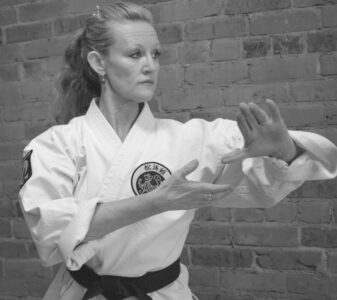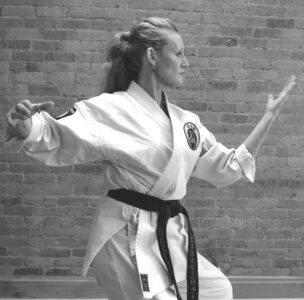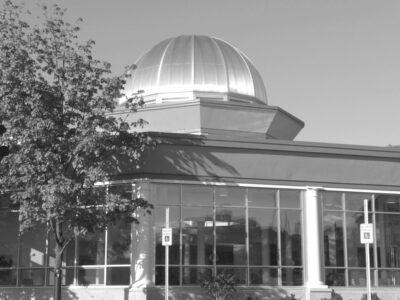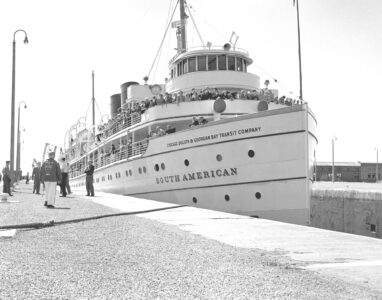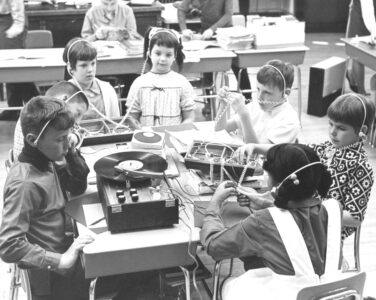Winter’s not that far off: Tai chi a good way to combat SAD
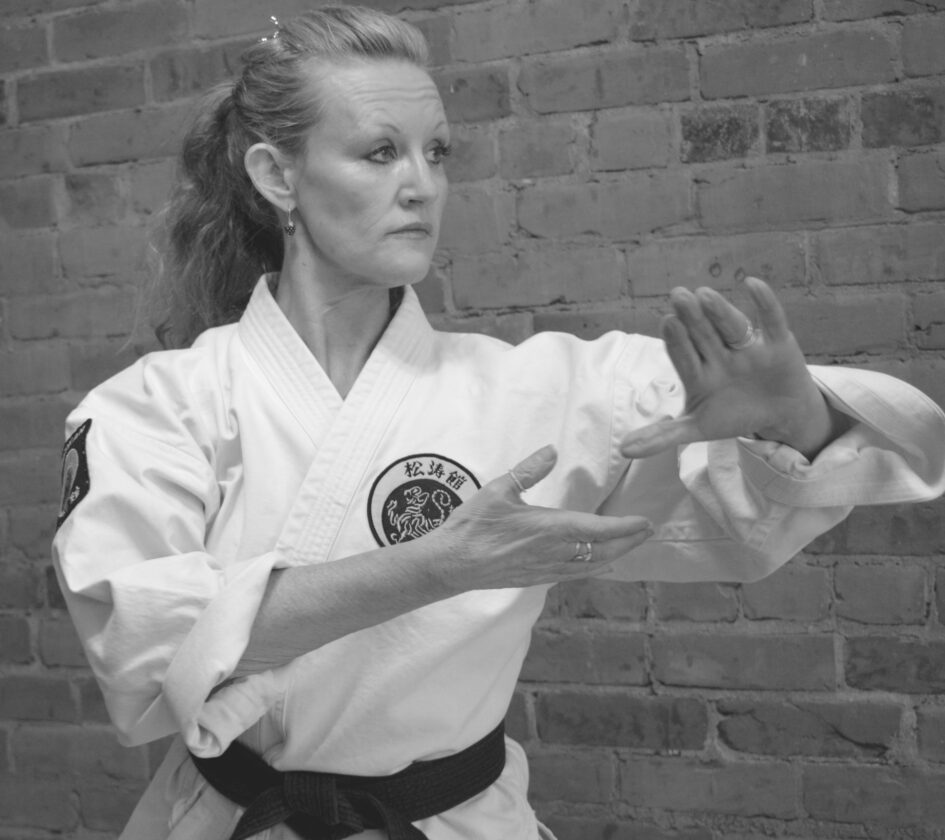
Sensei Dr. Traci Baxendale Ball is shown in both of these photos. (Photos courtesy Marquette Regional History Center)
- Sensei Dr. Traci Baxendale Ball is shown in both of these photos. (Photos courtesy Marquette Regional History Center)
- Sensei Dr. Traci Baxendale Ball is shown in both of these photos. (Photos courtesy Marquette Regional History Center)
In 1997, Marquette hosted the Winter Cities Forum. This annual forum, hosted by large metropolitan cities in even-numbered years and small cities in odd-numbered years, was where business and economic leaders would gather to learn and discuss the challenges associated with being located above the 45th parallel of latitude, where winter has an economic impact on local businesses.
Winter’s impact is not solely economic. People in the U.P. have always looked for ways to cope with the challenges of winter. Some people turn to outdoor activities like skiing and snowshoeing; others turn to the arts and learning. Whether indoors or outdoors, everyone benefits from winter activities that can reduce stress, increase intellectual and social engagement, and improve mobility.
One of the difficult challenges of a U.P. winter is the lack of sunlight. Almost every ancient civilization understood that light plays an important role in healing. As early as 1818, a French psychiatrist realized that his patients with mental health disorders benefited from exposure to light therapy.
Without modern antibiotics, as the 19th century progressed, doctors found that tuberculosis also could be treated by pine tar-based medicines, bed rest, good food, fresh air and heliotherapy. Heliotherapy — exposure to the sun — was thought to kill the bacteria and was integrated into the construction of the Morgan Heights Tuberculosis Sanitarium in Marquette County.
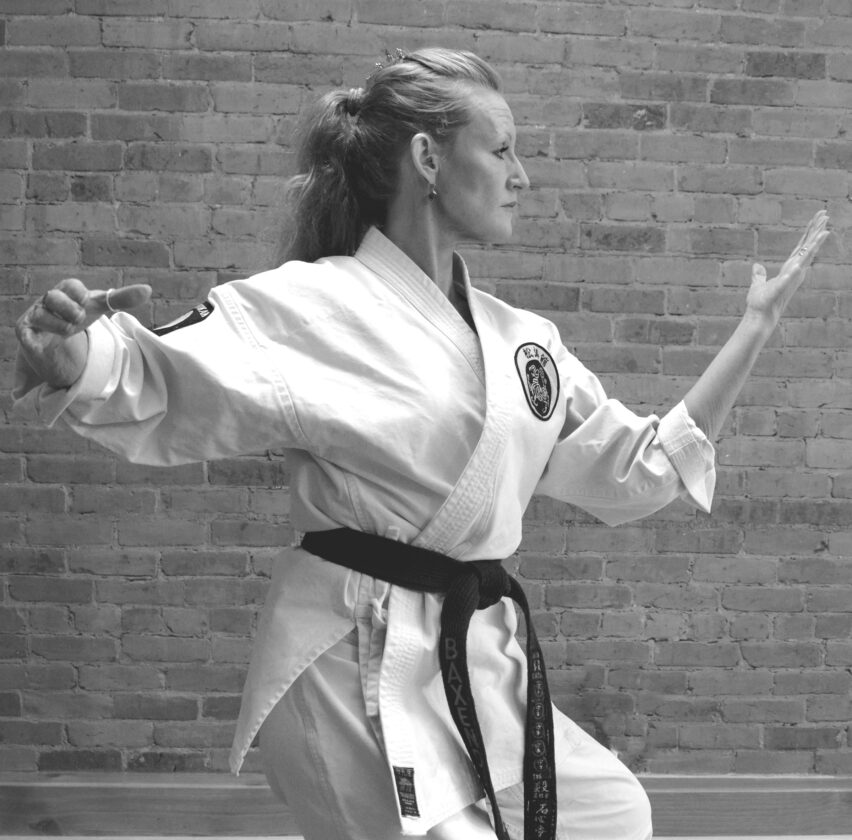
Sensei Dr. Traci Baxendale Ball is shown in both of these photos. (Photos courtesy Marquette Regional History Center)
By the 1980s, an American psychiatrist, Dr. Norman E. Rosenthal, led the team that first described seasonal affective disorder, which is caused by a biochemical imbalance in the hypothalamus region of the brain. Rosenthal’s team pioneered light therapy to treat the condition.
When the Marquette location of Wright & Filippis, a Michigan business specializing in prosthetics, orthotics and accessibility solutions, began selling SAD therapy lights in 2005 (for a cost of $390!), it was estimated that about 10% of northern Michigan residents suffered from SAD.
Another practice that has found a home in Marquette and the wider U.P. is tai chi. In 2015, Dr. Traci Baxendale Ball and her husband founded Vibrant Health Company in Marquette. Tai chi is an ancient Chinese practice known for its meditative movements and health benefits. While its origin lies far across the globe, its gentle forms have taken root in the U.P., enriching the lives and creating a growing sense of community among practitioners.
Winters can get long in the U.P. and tai chi, with its emphasis on low-impact movements and mindful breathing, offers a gentle and effective solution, particularly for older adults seeking to maintain their health and vitality while dealing with age-related changes and the unique challenges of the U.P.’s climate and lifestyle.
Benefits include improved balance and fall prevention, enhanced flexibility and range of motion, strengthened muscles, pain management, better cardiovascular health, stress and depression reduction, improved cognitive function, and socialization.
Join the Marquette Regional History Center and Mapping Medicare for “Tai Chi for All” at 1:30 p.m. on Wednesday, Sept. 10. During this segment of our Senior Support Series, Sensei Traci will lead participants through some history of tai chi. This afternoon of learning will provide a welcoming space to try out the intentional movement practice proven beneficial for both mind and body. This free program is open to all ages and is being held at the Marquette Regional History Center, 145 W. Spring St. in Marquette. Door prizes and complementary coffee will be provided.

